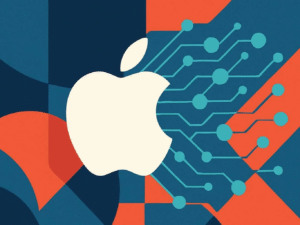
Databricks Acquires Tecton: A Game-Changer for Real-Time AI Agents
In one of the biggest AI business moves this month, Databricks has officially acquired Tecton, a Sequoia-backed startup specializing in real-time machine learning feature platforms. This strategic acquisition marks a significant step in Databricks’ mission to lead the next wave of AI innovation: building autonomous AI agents that can operate reliably across industries.
Why This Deal Matters
Tecton has built its reputation on making real-time data pipelines accessible and efficient for AI applications. Traditionally, companies had to rely on batch data processing, which could take minutes or even hours to update AI models. With Tecton’s technology integrated into the Databricks ecosystem, that gap narrows to seconds—or less. This means enterprises will now be able to:
- Build smarter AI agents that react instantly to live data.
- Deploy at scale without relying on separate infrastructure for data streaming.
- Simplify workflows, freeing data engineers and developers from tedious integration tasks.
In practical terms, this unlocks the ability for businesses to develop AI-powered applications such as fraud detection systems, personalized customer assistants, and predictive healthcare tools that operate in real time. Instead of waiting for delayed insights, decision-making becomes immediate and actionable.
Databricks’ Vision for AI Agents
The acquisition aligns with Databricks’ Agent Bricks initiative—a framework designed to help enterprises design and deploy their own autonomous AI agents. These agents go far beyond simple chatbots. They are being developed to:
- Execute tasks such as sending alerts, making transactions, or adjusting operations.
- Integrate deeply with company data to deliver accurate, context-driven decisions.
- Run with enterprise-grade reliability, governance, and security.
By incorporating Tecton’s real-time feature store, Databricks ensures that these AI agents are not only intelligent but also context-aware and capable of adapting instantly to new information. This level of responsiveness could give Databricks a competitive edge in the fast-evolving AI landscape.
The Competitive Landscape
This bold move places Databricks shoulder-to-shoulder with some of the most powerful players in the AI race:
- OpenAI & Microsoft, with their copilots and productivity assistants.
- Google DeepMind and the Gemini ecosystem, focused on advanced reasoning and large-scale intelligence.
- Anthropic and specialized startups, prioritizing safer and domain-specific AI systems.
Where Databricks differentiates itself is in its deep integration with enterprise data. While many AI companies focus primarily on model development, Databricks positions itself as the platform where AI meets business-critical data—the lifeblood of effective real-world applications.
What It Means for Businesses
The business implications of this acquisition are significant:
- Financial services can detect fraudulent transactions in seconds rather than hours.
- E-commerce platforms can deliver hyper-personalized recommendations in real time, boosting conversion rates.
- Healthcare providers can make immediate patient care adjustments based on live medical data.
These improvements aren’t just about speed or efficiency—they represent a shift toward real-time intelligence that can directly translate into revenue growth, competitive advantage, and better customer experiences.
The Bottom Line
With the acquisition of Tecton, Databricks is betting big on the future of AI. The company’s vision extends beyond large language models and static assistants. Instead, it sees the future in autonomous AI agents powered by live, streaming data—agents that don’t just answer questions but take meaningful action. In an era where every second counts, Databricks is positioning itself as the platform of choice for enterprises ready to harness the full potential of AI.






